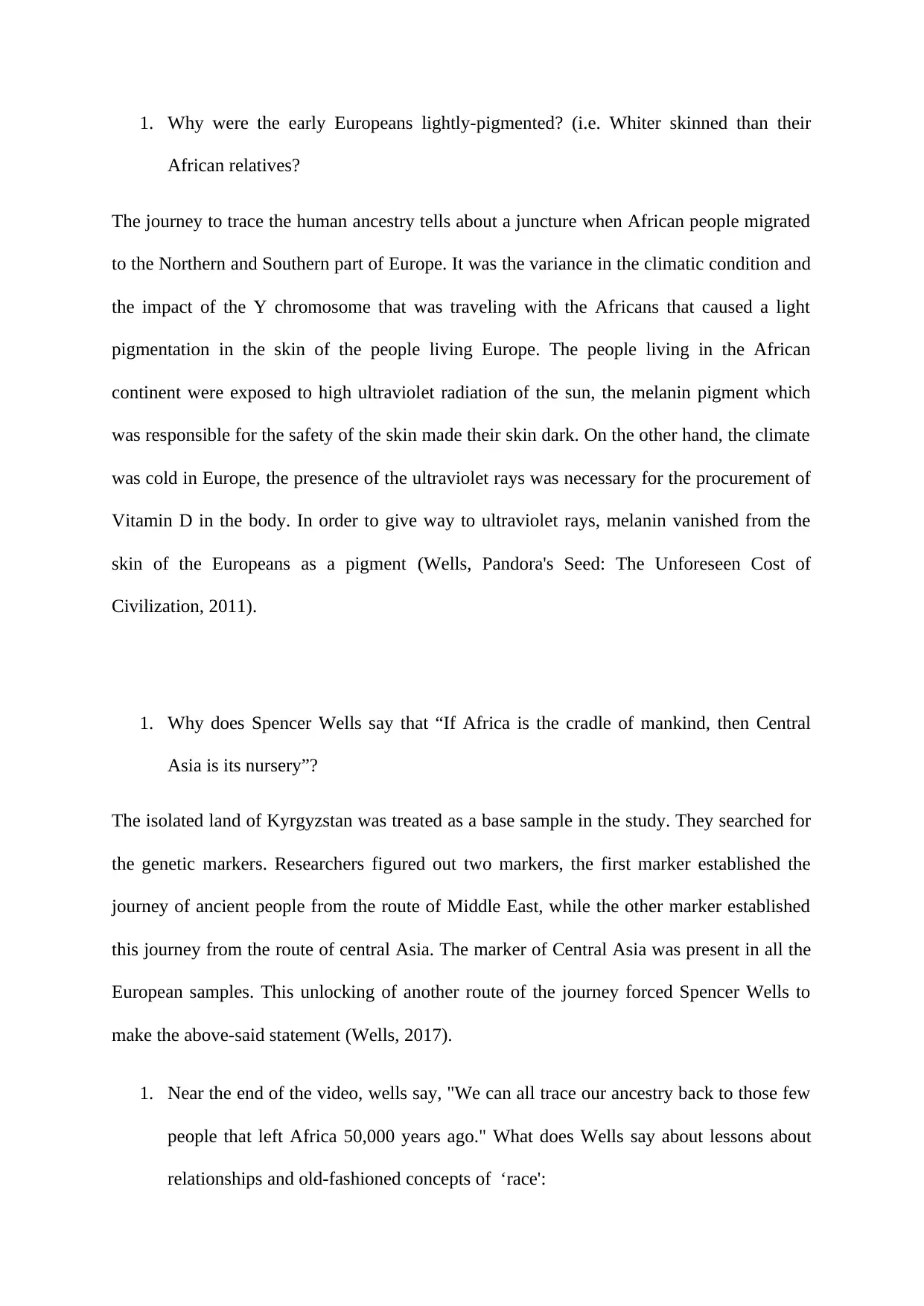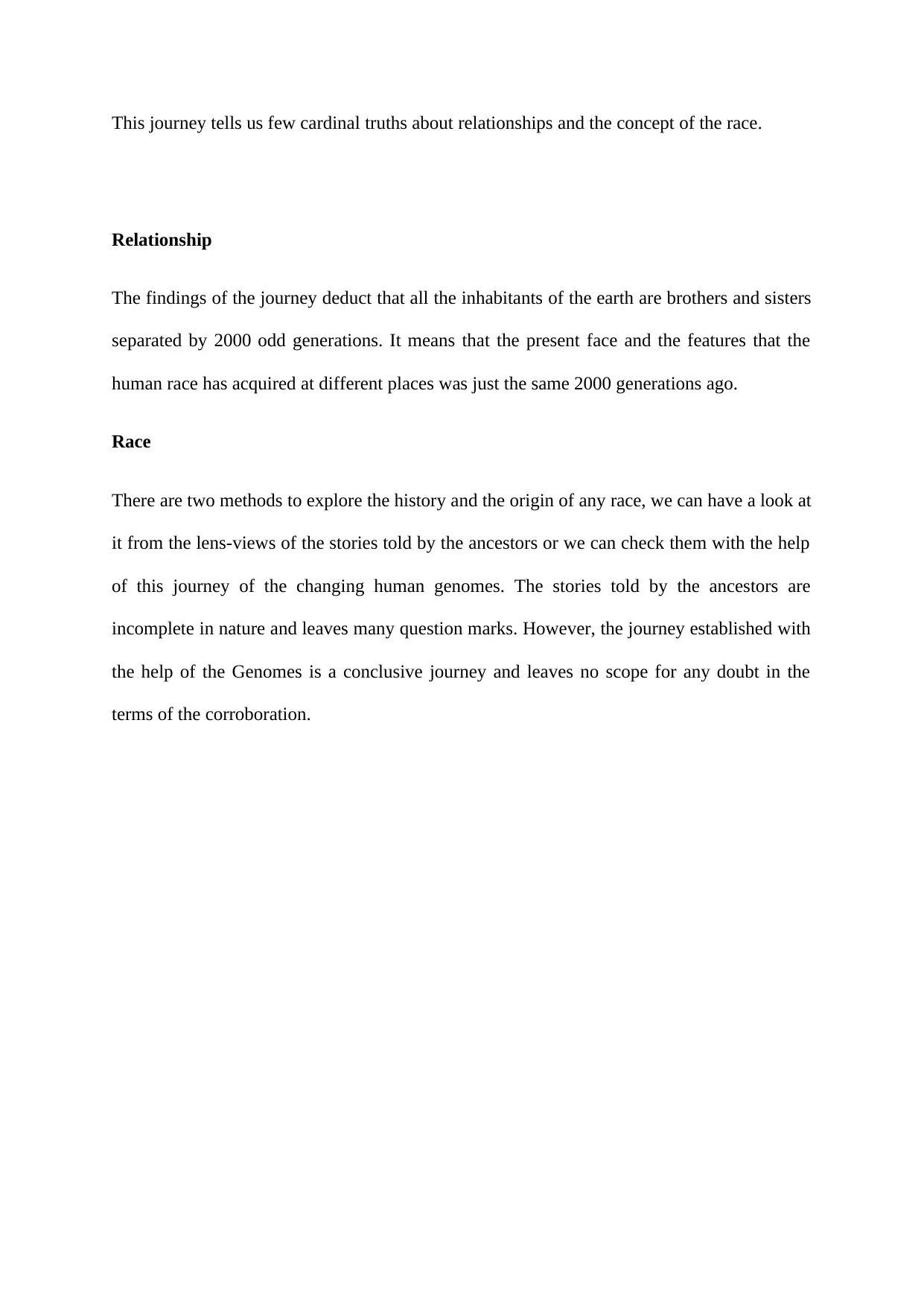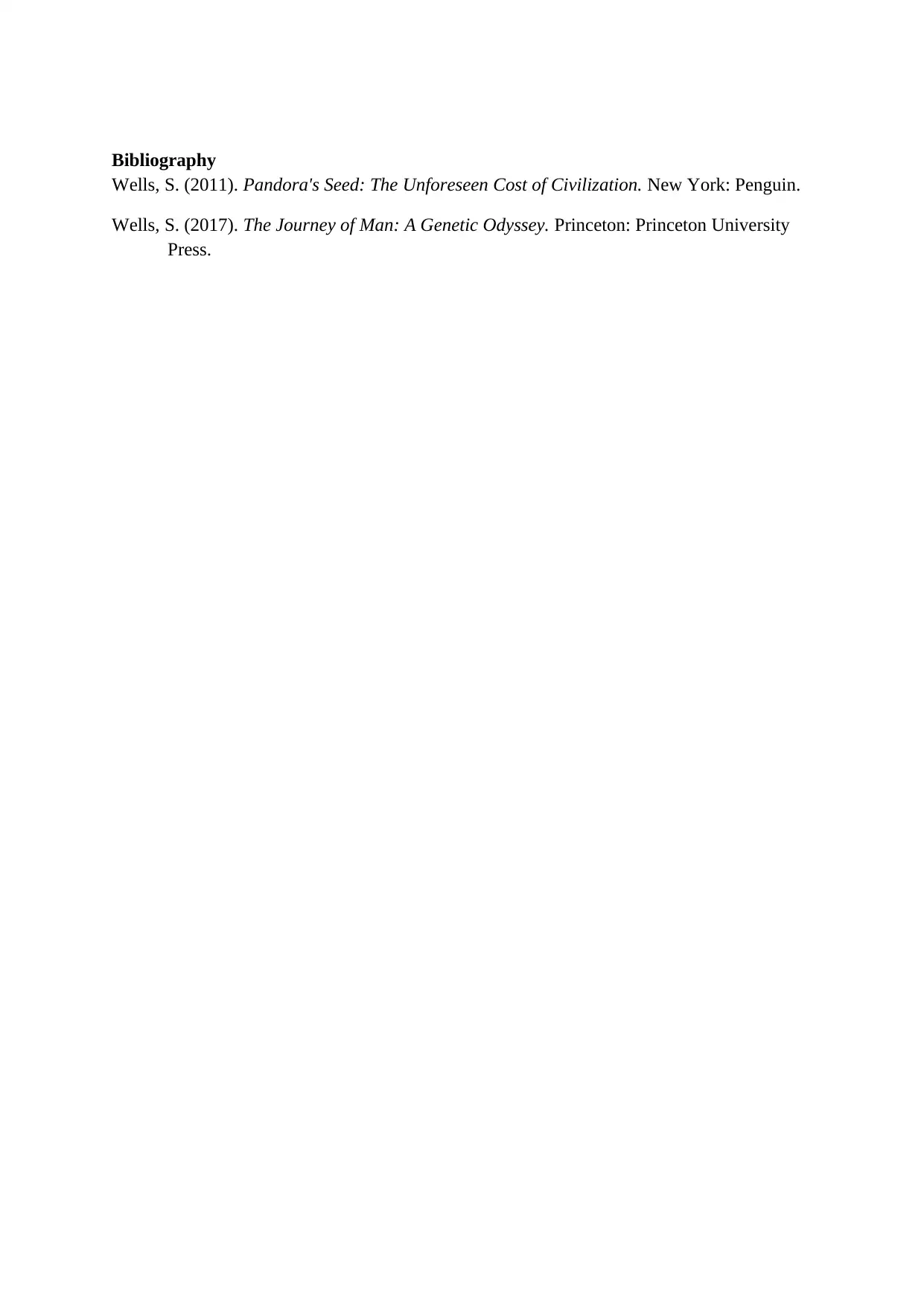University Anthropology Assignment: Journey of Man Video Analysis
VerifiedAdded on 2023/04/26
|3
|550
|80
Homework Assignment
AI Summary
This assignment analyzes the 'Journey of Man' video, addressing three key questions about human ancestry. The first question explores the reasons for the lighter pigmentation of early Europeans, attributing it to climatic factors and the need for Vitamin D synthesis, which led to a reduction in melanin production. The second question examines Spencer Wells' statement that Central Asia is the 'nursery' of mankind, explaining that genetic markers found in Central Asia helped trace human migration routes. The final question delves into Wells' insights on relationships and the concept of race, highlighting that all humans are related through shared ancestry, and that the study of genomes provides a conclusive understanding of human origins, unlike ancestral stories. The assignment uses Wells' research to emphasize the interconnectedness of humanity and the outdated nature of racial concepts.
1 out of 3






![[object Object]](/_next/static/media/star-bottom.7253800d.svg)